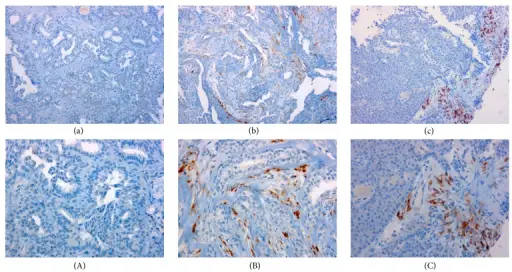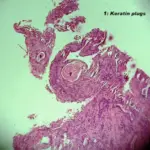Ductal papillomas are benign papillary neoplasms that generally occur in minor salivary glands. They include both intraductal papillomas and inverted ductal papillomas.
What is the Pathology of Ductal Papillomas?
The pathology of ductal papillomas is:
-Etiology: The cause of ductal papillomas is unknown, though some authors have related it to human papillomavirus (HPV) infection.
-Genes: Unknown.
-Pathogenesis: The sequence of events that lead to ductal papillomas is papillomatous proliferation due to neoplastic proliferation of any epithelium of the ductal system.
-Histology: Unicystic lesions lined by papillary proliferation with bland cuboidal to columnar epithelial cells with fibrovascular cores.
How does Ductal Papillomas Present?
Patients with ductal papillomas typically are either male or female present at age range of adults. The symptoms, features, and clinical findings associated with ductal papillomas include painless submucosal lesions.
How is Ductal Papillomas Diagnosed?
Ductal papillomas is diagnosed by physical exam, imaging, and biopsy.
How is Ductal Papilloma Treated?
Ductal papillomas are treated by simple excision surgery.
What is the Prognosis of Ductal Papillomas?
The prognosis of ductal papillomas is fair.



